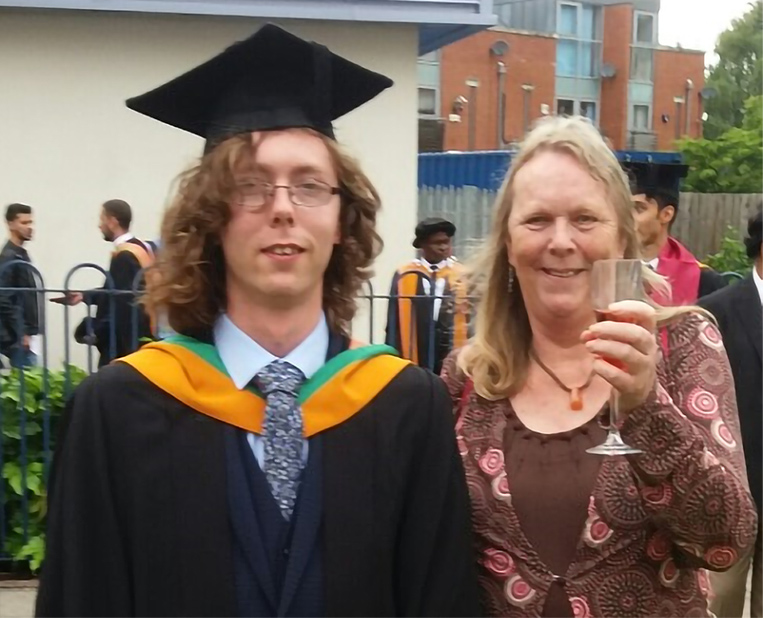
Time credits can be transferred between time bank members and their family and friends. Here’s how a member of Nottingham time bank used her credits to support her son’s dream of going to university.
My son and I have dyspraxia, a learning disability that basically means that you have poor mental and physical coordination. This gives rise to untidy handwriting and a need to work slowly at school. We also like to talk a lot; my diagnosis showed that my communication skills are far better than my organisational skills.
At secondary school, my son Sam had his heart set on going to university and his best subjects were sciences, so he needed Higher Maths GCSE to study sciences for A level.
Sam was accepted into the school’s Sixth Form to do a BTEC. Although they didn’t teach Higher GCSE Maths, they could enter him for the exam. Fortunately, I belonged to our local time bank in Nottingham. I put out a request for help and lovely Gemma, who had a maths degree, came to our aid. She came after work nearly every week between November 2010 and the exam in June 2011.
Fortunately, I had plenty of time credits to cover this as I was doing weekly reception work for one of our members. One of the things that Gemma did was listen to Sam talk. I’d hear them chattering away, then they’d get down to work. Gemma said she really enjoyed these conversations and found him very interesting. She also put a lot of effort into preparing him for the exam.
The result? Sam didn’t just pass his Higher Maths GCSE, he got an A* – a far better result than for any of his other GCSEs. He has now passed his A Levels and completed a Physics degree at Leicester De Montfort University, and he’s now studying for a Master’s in Physics at Loughborough University. To me, the time bank has been a lifeline, on this and several other occasions. When there was no funding left to employ a broker, I struggled with other members to keep it going – and now I am the time bank broker myself.

